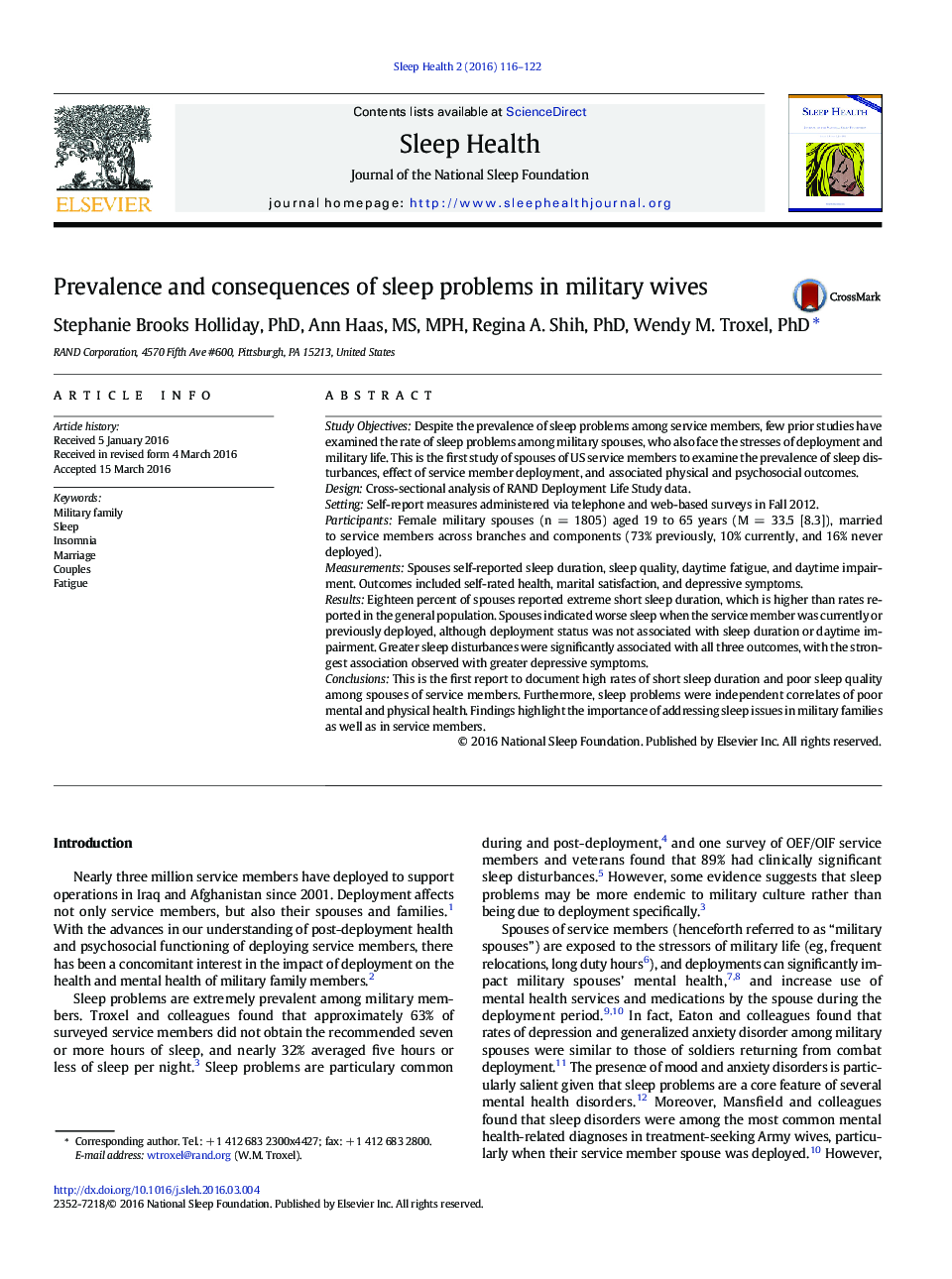| Article ID | Journal | Published Year | Pages | File Type |
|---|---|---|---|---|
| 916245 | Sleep Health | 2016 | 7 Pages |
Study ObjectivesDespite the prevalence of sleep problems among service members, few prior studies have examined the rate of sleep problems among military spouses, who also face the stresses of deployment and military life. This is the first study of spouses of US service members to examine the prevalence of sleep disturbances, effect of service member deployment, and associated physical and psychosocial outcomes.DesignCross-sectional analysis of RAND Deployment Life Study data.SettingSelf-report measures administered via telephone and web-based surveys in Fall 2012.ParticipantsFemale military spouses (n = 1805) aged 19 to 65 years (M = 33.5 [8.3]), married to service members across branches and components (73% previously, 10% currently, and 16% never deployed).MeasurementsSpouses self-reported sleep duration, sleep quality, daytime fatigue, and daytime impairment. Outcomes included self-rated health, marital satisfaction, and depressive symptoms.ResultsEighteen percent of spouses reported extreme short sleep duration, which is higher than rates reported in the general population. Spouses indicated worse sleep when the service member was currently or previously deployed, although deployment status was not associated with sleep duration or daytime impairment. Greater sleep disturbances were significantly associated with all three outcomes, with the strongest association observed with greater depressive symptoms.ConclusionsThis is the first report to document high rates of short sleep duration and poor sleep quality among spouses of service members. Furthermore, sleep problems were independent correlates of poor mental and physical health. Findings highlight the importance of addressing sleep issues in military families as well as in service members.
